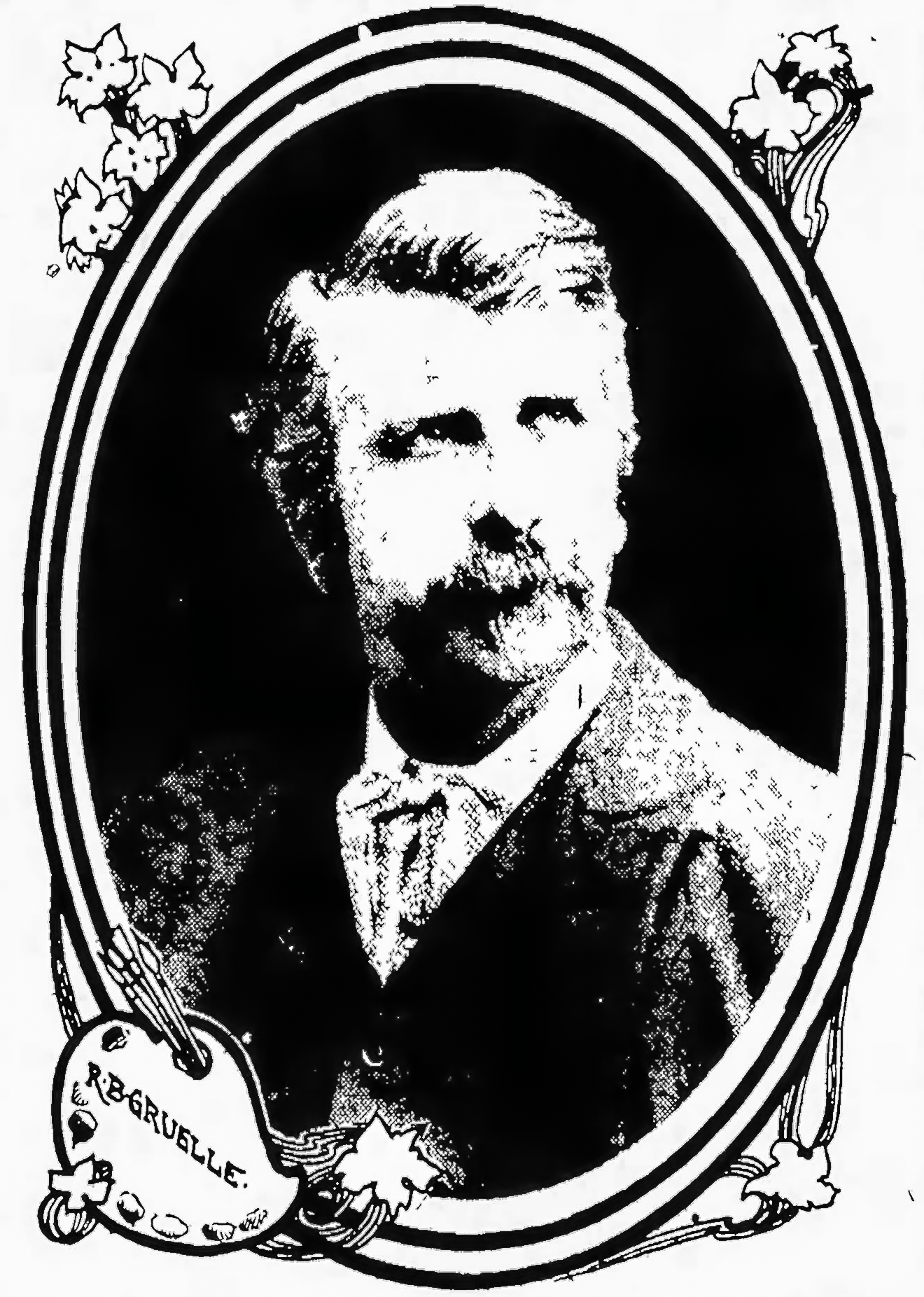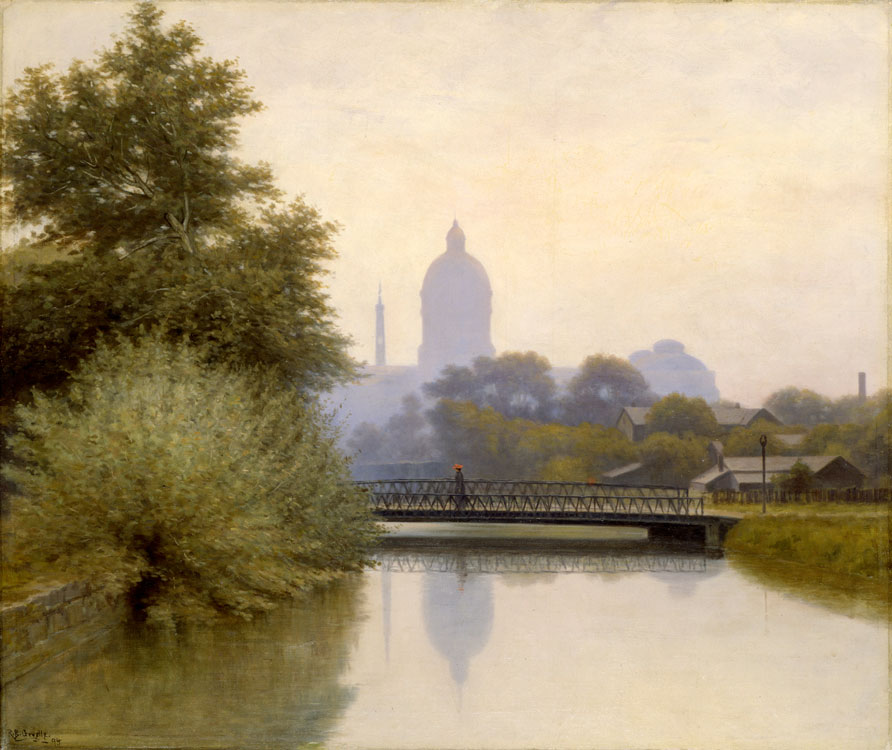
Photo info ...
Credit: IndyStarView Source
(Feb. 22, 1851-Nov. 8, 1914). Born in Cynthiana, Kentucky, Richard Gruelle was an author and artist who was a member of the of Indiana painters. He spent his boyhood years in Arcola, Illinois, where an apprenticeship with the village painter took the place of formal art training. He lived in Illinois, Ohio, and Florida before settling in Indianapolis in 1882.

The largely self-taught painter supported his family with the sale of landscape paintings and commission work, most notably illustrations for “When The Frost Is On The Punkin” and “The Old Swimmin’-Hole” by Hoosier poet . He was a neighbor of the poet in the neighborhood. In 1892, Gruelle undertook the writing of a book based on the nationally recognized art collection of Baltimore industrialist William T. Walters. The resulting 217-page was published in 1895.
In Gruelle’s later years, his artistic life was split between family in Indianapolis and annual painting trips to the East Coast shoreline. There he would fill sketchbooks and canvases with marine landscapes that would share the spotlight with scenes from around the Hoosier capital in his annual winter shows.
In 1910, Gruelle moved to Connecticut, setting up a family home with his children and their spouses near the historic town of New Canaan. His eldest son, illustrator , subsequently became the creator of Raggedy Ann. Johnny named the character using two of Riley’s best-known poems: “Little Orphant Annie” and the “Raggedy Man.” Even though he had located on the East Coast, Richard Gruelle maintained ties with Indianapolis. He continued to write occasional articles about art for the as well as holding yearly exhibits of his New England work, usually in the galleries of .
A member of the Society of Western Artists, the , and the New Canaan Society of Artists, Gruelle was known primarily for his pastoral landscapes. With the exception of the 1894 Hoosier Group show in Chicago, the 1904 Louisiana Purchase Exposition at St. Louis, and Society of Western Artists annuals, he rarely displayed his work in national shows. Instead, he focused on one-man exhibitions in Indianapolis and New Canaan. Gruelle died in Indianapolis while visiting his wife’s family.

Help improve this entry
Contribute information, offer corrections, suggest images.
You can also recommend new entries related to this topic.